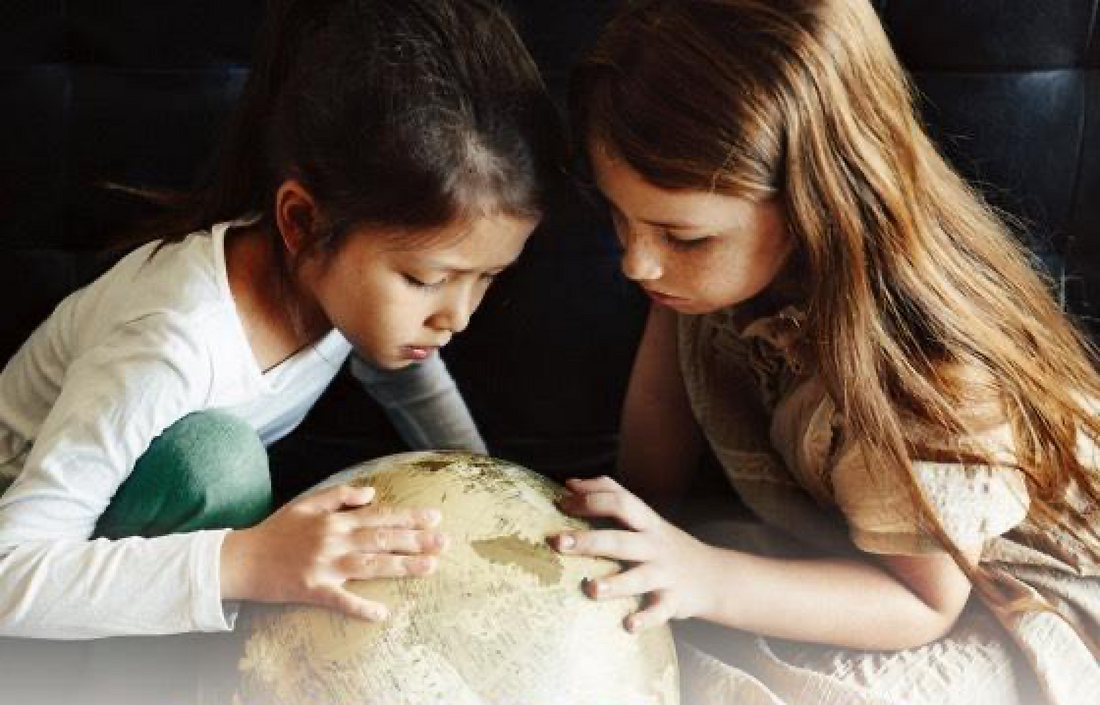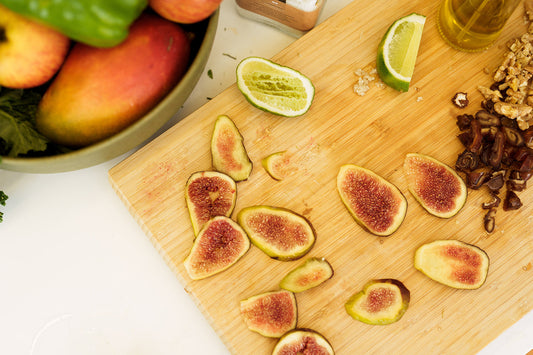Mother Earth is the best nutritionist. She has been giving us every delicious nutrient and mineral we need to flourish as healthy humans since the beginning of time. The earth is filled with remarkable, natural sustenance. To create and maintain optimal health, look no further than nature herself.
It’s no secret that eating naturally and limiting processed food is an integral part of sustaining a healthy body and mind. But it’s also an important part of sustaining a healthy environment. According to Nature.com, 37% of Earth’s land area is dedicated to food production, which is responsible for a great deal of our yearly greenhouse gas emissions.
How a Plant-Based Diet Is Good for the Earth
The air, water, and food we consume are produced by Mother Earth. This means human health is inexorably linked to the ecosystem we live in. Humans are sensitive to the impacts of ecological damage, just like the flora and fauna that are being rapidly destroyed by industrialization.
Natural ecosystems regulate everything from oxygen in the air to the flow and purification of water through sediments. Any damage to the health of the planet has a direct and quantifiable impact on human survival — air pollution is linked to 12% of global deaths annually.
A sustainable, plant-based diet can help counteract the negative impacts of agriculture, including:
1. Industrial Farming Contributes to Climate Change
People eat a lot of meat — about 230 million tons of animals every year, including chickens, cows, sheep, and pigs. All of them eat up even more food and water, and dangerously, they also emit methane and greenhouse gasses and make tons of physical waste.
It's hard to say exactly, but somewhere between 10% and 50% of all gasses in the air come from livestock and industrial farming. And about one-third of all fossil fuels produced in the USA go to animal agriculture.
2. Meat Production Requires a Ton of Land and Water
Non-plant-based diets put incredible stress on tropical rainforests. That's not because people want wood, but because they need more land for cattle. About 6 million hectares of forests were cut just last year to graze cattle and to grow food for cattle.
About 30% of the surface of the earth is used for animals and their food, which consume most of the food grown on the planet. Some research has indicated that if grain fed to livestock went to people instead, we'd be feeding twice as many people!
They're thirsty animals, too. That's a problem for all of us. As the water gets more scarce, more and more people are living with less water. And 70% of the world's water is going to farms.
3. It Poisons the Dirt, Oceans, and Air
Industrial farming produces tons of manure and urine, which are drained into massive, poisonous cesspools. These can (and often do) pollute underground and surface water supplies.
Animal waste from factory farms, sewage, and nitrogen compounds and fertilizer are all swept into the sea. Algae blooms are often the result, but there are also enormous dead zones from Scandinavia all the way to the South China Sea.
Big factory farms put out not just greenhouse gasses like methane and carbon dioxide, but are also a nightmare for pesticides and antibiotics. About two-thirds of the ammonia in the world, which makes acid rain worse, comes from farm animals.
4. Farm Runoff Contributes to Antibiotic Resistance
Animal waste can contain salmonella, E. coli, cryptosporidium, and fecal coliform. These can get to people through runoff from waste lagoons. But tons of antibiotics are mixed in there, too, contaminating groundwater and making people less resistant to all kinds of bacteria.
How to Start a Sustainable Plant-Based Diet
Adopting a sustainable diet may seem daunting, but there are simple ways to start your nutritious, delicious, and environmentally-friendly diet. You don’t have to make drastic sweeping changes right away. Take it one step at a time, making small, meaningful changes to what you eat and where you buy it from.
Buy locally-sourced, fresh, organic produce whenever possible. Add color and a variety of plant-based textures to your plate. Start your own garden at home, even if you have a small space, you can grow herbs, fruits, and veggies.
Consider setting aside time to organize your meals. This will make cooking a more enjoyable task, allow you to plan your time, and even save money.
Try switching things from your daily diet to incorporate more alkaline-rich foods. The oils you cook with, the grains you incorporate, and the milk you use are the easiest changes you can make. Consider using avocado oil for cooking, wild rice for your grain, and homemade walnut milk for your smoothies.
Other Ways to Protect Mother Nature’s Resources
Most environmental issues stem from greed combined with instant gratification and inconsideration. Poor natural resource management creates pollution, malnutrition, and disease. Each one of us must take personal responsibility for what we use, and what we return, to the earth. Take less, waste less, make less mess, and give more back.
- Air: Reduce fossil fuels (walk, cycle, and share transport), plant, or sponsor trees.
- Business: Support sustainable, ethical, and non-polluting companies (like Dr. Sebi’s!).
- Energy: Convert to sustainable green solutions, like solar or wind.
- Food:Eat alkaline, seasonal, local, and organic, grow your own herbs and plants.
- Products: Choose quality products made from recyclable materials.
- Water: Quit chemicals, reduce toilet flushes, capture rainwater, and conserve usage.
- Waste: Reduce food waste, consider composting food scraps.


















































